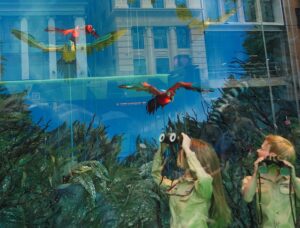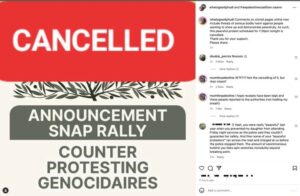On Sunday, I put up a Facebook post. The reaction to it was a lot more positive to the one I was expecting, so I’m sharing it here… with an update.
I’ve been trying to find words to say this all day. I’ve given up trying to find decent words and I hope that what I say is clear. This post may get me a lot of people arguing, but it’s important, so it’s public. Be kind, please. None of this stuff is easy, for anyone.
For the past little while, so many people around me have blamed everyone Jewish for even the smallest thing someone else Jewish or Israeli might have done. They’ve translated antisemitism into false flags and are full of spite and opinions. I don’t know if 75% of Jewish Australians are Zionist, because I don’t know what definition of Zionism those who claim it use and I’ve never been asked as part of a survey… and nor have most Jewish Australians I know. I know I don’t worship Satan. I certainly know I’ve not killed 30,000 children. That sort of thing. Life has been… rather difficult.
Lots of folks on the left demand a shibboleth, that I publicly denounce or deny this thing or that thing before they will talk to me. I’ve just accepted that I don’t get to talk with them, and I’m sorry, but saying “OK” and giving them what they demand is adding to the bigotry around by playing the games that let people determine good Jews and bad Jews and I try not to play those games.
You know about some of this because I speak about it when I can.
This week, it has taken a turn, or even a twist. Not an unexpected twist, but one that saddens me. The sort of bigotry I’ve just described is infectious, and this is the moment I can choose to not be part of spreading that infection to other Australians. (And the medical metaphor may alert some of you of what’s to come.)
Right now, Australia’s facing the case of two nurses who I, personally, never, ever want to meet. I am not going to make the same assumptions about Muslim Australians from the example of these two, that people make about Jews from whatever examples they use. I would like the hospital at Bankstown to look closely into things and, if there is a pattern of bigotry embedded, to do something about it. I would like both nurses to be tried, fairly, with all the evidence laid out. I will not ask any Muslim Australian (whether they’re a friend or complete stranger) to give a particular opinion on what the nurses said or did before I am willing to talk to them about anything.
Things are going to be very difficult for Muslim Australians for the next few weeks and not a single one of them needs my demands on top of everything else. They don’t need any of our demands. Any questions or needs should be sent, courteously, to whichever governing body is responsible for the specific thing you need to know. If it’s a religious opinion, ask religious experts. If it’s a medical opinion relating to Bankstown Hospital, then Bankstown Hospital would have the right people to talk to. Your local dentist or wifi expert is not responsible for what those nurses said and should not be put on the spot about it. The only organisations I want to hear from, myself, are the ones linked to the two nurses and who moderate the ethical behaviour within their communities and professions. Some of them have already spoken out. I can wait for the others.
Yes, as a Jew, I will try to avoid the hospital in question … because these sorts of attitudes often belong to a community in a location and because I’ve heard other rumours. I hope they’re only rumours. Even if they’re true, the vast, vast, vast majority of Muslim Australians wouldn’t even know those two nurses. Many of them don’t even come from similar backgrounds to the two nurses.
I will not let my personal fear turn me into someone who hates a bunch of other Australians just because they share a religion with two people I do not ever want to meet. My favourite local grocer is still my favourite grocer (and owned by a Muslim family) and my favourite local butcher is still the halal butcher in Mawson, just next door.
Update:
Organisations linked to the nurses are beginning to speak up. One public statement in particular is worrying. I looked into the organisation that issued the announcement, and the announcement appears to reflect their identity (and may make them part of the same community as the nurses, with some of the same views as the nurses), in which case, they would not like me at all. They still comprise only a tiny fraction of Muslim Australia and give absolutely no excuse for treating anyone else badly.
It does mean that there are places that anyone Jewish may have to be careful (more places, I mean) and this is bad, however, I will continue to check out all the statements, and continue to not judge anyone who has not done anything in need of judging. My friends are still my friends and I am deeply disappointed that I have far too much coffee and don’t need mincemeat and my pantry is full and therefore no excuse to go to Mawson and buy favourite things. I go for coffee and mincemeat and emerge with three bags of food I love.
I often talk about food when I’m distressed, and the nurses thing has riled up even more hate than other events and… I am still determined not to hate just because others have fallen into that hole.


